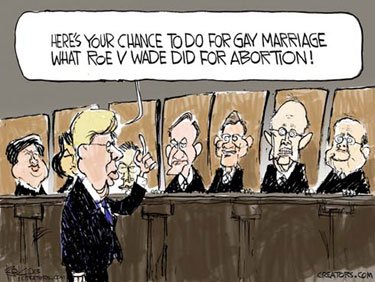Unpacking Yesterday’s Charges
Andrew C. McCarthy, Paul Mannafort, Robert Mueller, Russia
I was hoping somebody would take the time to read Mr. Mueller’s charges. Andrew C. McCarthy kindly did.
On first glance, Mueller’s case, at least in part, seems shaky and overcharged.
Even though the Ukrainian money goes back to 2006, the counts involving failure to file FBARs (Counts Three through Nine) go back only to 2012. This is likely because the five-year statute of limitations bars prosecution for anything before then. Obviously, one purpose of the conspiracy count (Count One) is to enable prosecutors, under the guise of establishing the full scope of the scheme, to prove law violations that would otherwise be time-barred.
The offense of failing to register as a foreign agent (Count Ten) may be a slam-dunk, but it is a violation that the Justice Department rarely prosecutes criminally. There is often ambiguity about whether the person’s actions trigger the registration requirement, so the Justice Department’s practice is to encourage people to register, not indict them for failing to do so.
It may well be that Manafort and Gates made false statements when they belatedly registered as foreign agents, but it appears that Mueller’s office has turned one offense into two, an abusive prosecutorial tactic that flouts congressional intent.
Specifically, Congress considers false statements in the specific context of foreign-agent registration to be a misdemeanor calling for zero to six months’ imprisonment. (See Section 622(a)(2) of Title 22, U.S. Code.) That is the offense Mueller charges in Count Eleven. But then, for good measure, Mueller adds a second false-statement count (Count Twelve) for the same conduct — charged under the penal-code section (Section 1001 of Title 18, U.S. Code) that makes any falsity or material omission in a statement to government officials a felony punishable by up to five years’ imprisonment.
Obviously, one cannot make a false statement on the foreign-agent registration form without also making a false statement to the government. Consequently, expect Manafort to argue that Mueller has violated double-jeopardy principles by charging the same exact offense in two separate counts, and that the special counsel is undermining Congress’s intent that the offense of providing false information on a foreign-agent registration form be considered merely a misdemeanor.
Finally, the money-laundering conspiracy allegation (Count Two) seems far from slam-dunk. For someone to be guilty of laundering, the money involved has to be the proceeds of criminal activity before the accused starts concealing it by (a) moving it through accounts or changing its form by buying assets, etc., or (b) dodging a reporting requirement under federal law.
Now, it is surely a terrible thing to take money, under the guise of “political consulting,†from an unsavory Ukranian political faction that is doing the Kremlin’s bidding. But it is not a violation of American law to do so. The violations occur when, as outlined above, there is a lack of compliance with various disclosure requirements. Mueller seems to acknowledge this: The money-laundering count does not allege that it was illegal for Manafort and Gates to be paid by the Ukrainian faction. It is alleged, rather, that they moved the money around to promote a scheme to function as unregistered foreign agents, and specifically to avoid the registration requirement.
That seems like a stretch. To be sure, the relevant money-laundering statute includes in its definition of “specified unlawful activity†“any violation of the Foreign Agents Registration Act of 1938.†(See Section 1956(c)(2)(7)(D) of Title 18, U.S. Code.) But the prosecution still has to prove beyond a reasonable doubt that the money was the proceeds of unlawful activity in the first place. Moreover, the prosecution must prove beyond a reasonable doubt that Manafort and Gates (a) knew the money was the proceeds of illegal activity and (b) transported the money the way they did with the specific intent of avoiding having to register as foreign agents. This count will thus fail if there is any doubt that the Ukrainian money was illegal under American law, that Manafort and Gates knew it was illegal, that they knew the work they were doing required them to register as foreign agents, or that it was their intention to promote a failure-to-register violation.
Even from Paul Manafort’s perspective, there may be less to this indictment than meets the eye — it’s not so much a serious allegation of “conspiracy against the United States†as a dubious case of disclosure violations and money movement that would never have been brought had he not drawn attention to himself by temporarily joining the Trump campaign. From President Trump’s perspective, the indictment is a boon from which he can claim that the special counsel has no actionable collusion case.





